Has your utility service recently left you in the dark or without water? You're not alone; many homeowners face disruptions that can impact their daily lives. Navigating the compensation process can seem daunting, but it doesn't have to be! Join us as we outline the steps to effectively request compensation for utility service outages, ensuring you get the assistance you deserve.
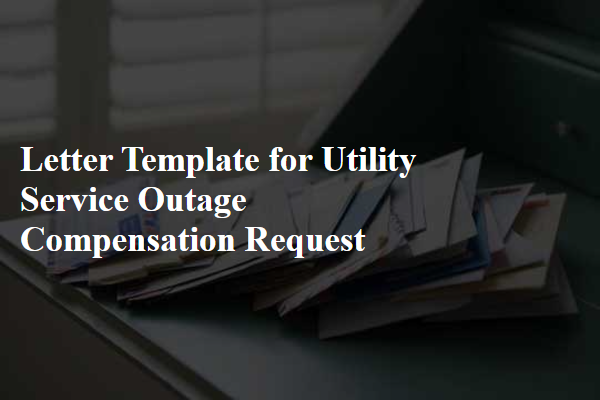
Clear personal and account information
A utility service outage can prompt inconvenience for customers relying on electricity, gas, or water, affecting daily routines and productivity. For example, a power outage in New York City on July 22, 2021, impacted thousands of residents, leaving many without essential services for several hours. Individuals experiencing extended outages often seek compensation from service providers, citing repercussions such as spoiled food, disrupted work-from-home situations, and potential damage caused by surges when power restores. When drafting a compensation request, customers should include their account number (usually found on billing statements), service address, specific dates and duration of the outage, and any personal impacts endured during the service interruption. Supporting documentation, such as photographs of food spoilage or receipts for alternative arrangements, can strengthen the claim.
Detailed description of the outage incident
In crafting a letter template for a utility service outage compensation request, it is essential to include a detailed description of the outage incident. This should encompass the date and time when the outage occurred, providing a clear timeline of the event. Include the duration of the disruption, specifying how long the service was unavailable, as this impacts compensation eligibility. Mention the specific utility service affected, whether electricity, water, or gas, and any known causes of the outage, such as severe weather or technical failures. Highlight the impact on daily life, particularly disruptions to routines, such as missed work commitments or spoiled food items. This comprehensive account will substantiate the request and enhance the chances of receiving adequate compensation.
Specific compensation request with justification
Prolonged utility service outages can lead to significant inconvenience and financial loss for residents. For instance, a power outage lasting over 12 hours can disrupt essential services like heating or refrigeration, which can spoil food and lead to additional expenses. Customers residing in areas like New York, often experience outages due to severe weather conditions, such as hurricanes or winter storms, which can severely hamper daily activities. Justification for compensation may include costs incurred for alternative heating solutions or the purchase of ice and coolers to preserve perishable items, along with potential losses from disrupted home businesses. Utility companies typically have compensation policies based on outage duration and impact, allowing customers to submit detailed claims for reimbursement.
Supporting evidence and documentation
Utility service outages can significantly disrupt daily life and cause considerable inconvenience, particularly in essential services like electricity or water. Documentation such as outage notices, photographs of affected areas, or utility bills marked with service interruptions serve as vital evidence to support compensation claims. Detailed records of lost perishable goods, additional expenses incurred, and the specific duration of the outage emphasize the impact on households. Reference local regulations or precedents set by similar compensation cases to strengthen the claim. Provide customer account numbers to facilitate verification, ensuring prompt acknowledgment of the request by utility providers.
Polite and professional tone
Utility service outages can disrupt daily life significantly, causing inconvenience and financial strain. Such outages, particularly those lasting more than 24 hours, are often covered under compensation policies established by utility companies. Customers may experience challenges like lack of access to essential services, increased costs for alternative solutions, and the stress of disrupted schedules. Cities like New York have specific protocols for outage compensation, requiring residents to document outage durations and related difficulties. It is essential for customers to articulate their experiences clearly and provide any necessary documentation when submitting compensation requests for outages.
Letter Template For Utility Service Outage Compensation Request Samples
Letter template of utility service outage compensation request for residential customers
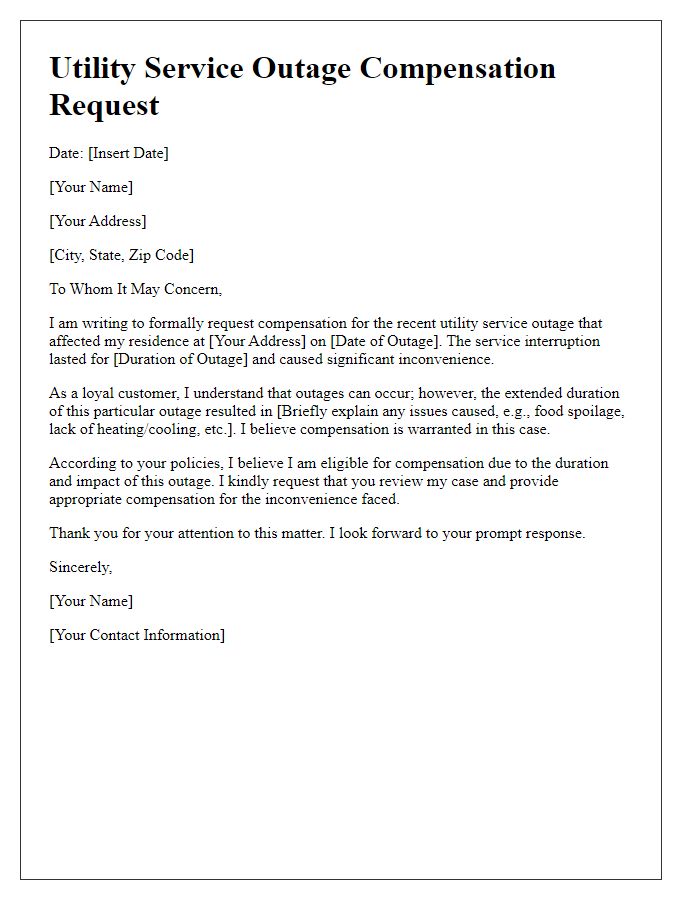
Letter template of utility service outage compensation request for business owners
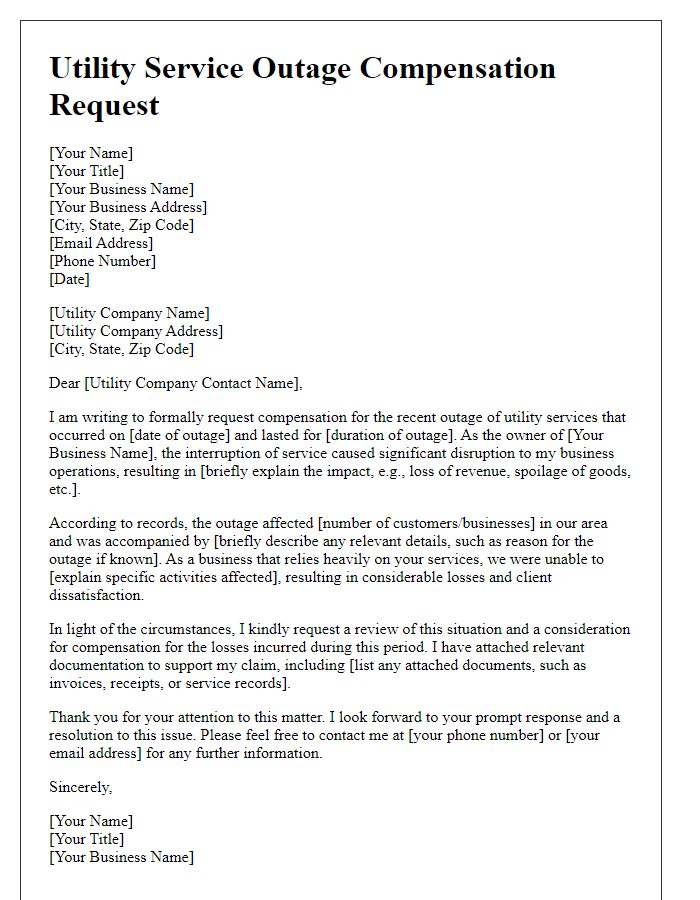
Letter template of utility service outage compensation request for senior citizens
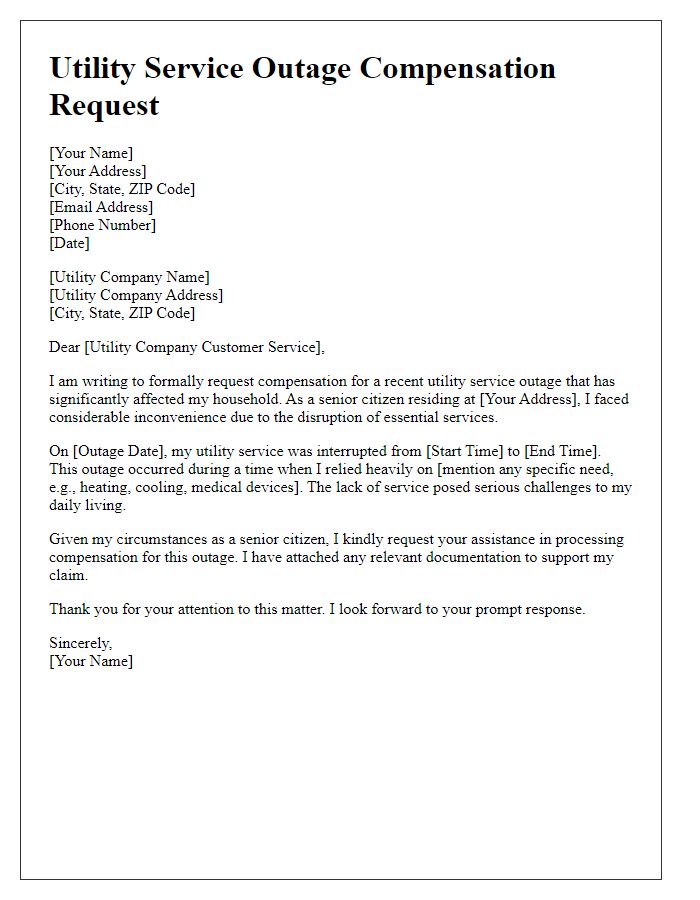
Letter template of utility service outage compensation request for low-income households
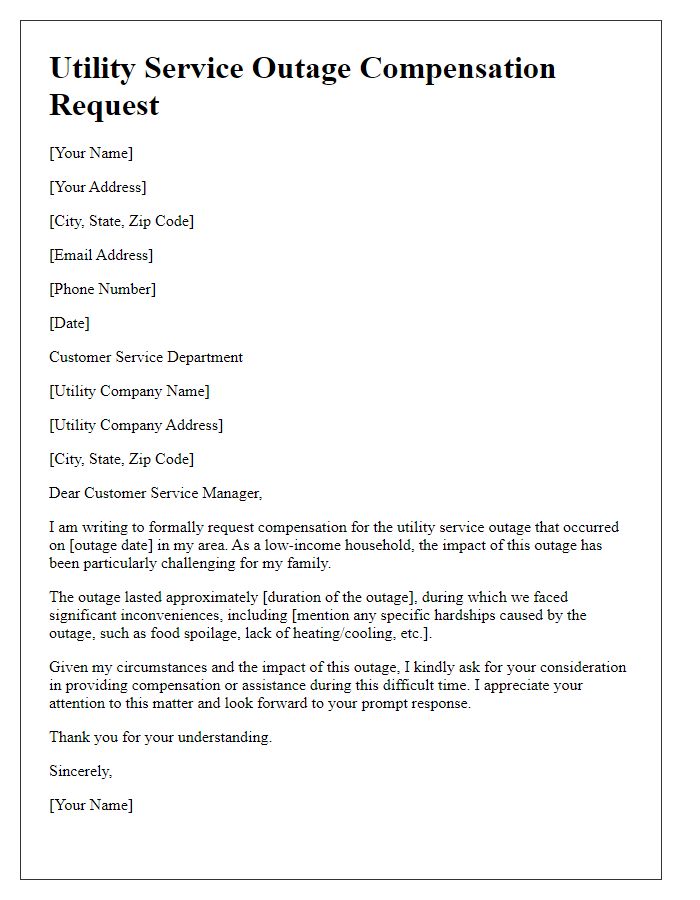
Letter template of utility service outage compensation request for families with children
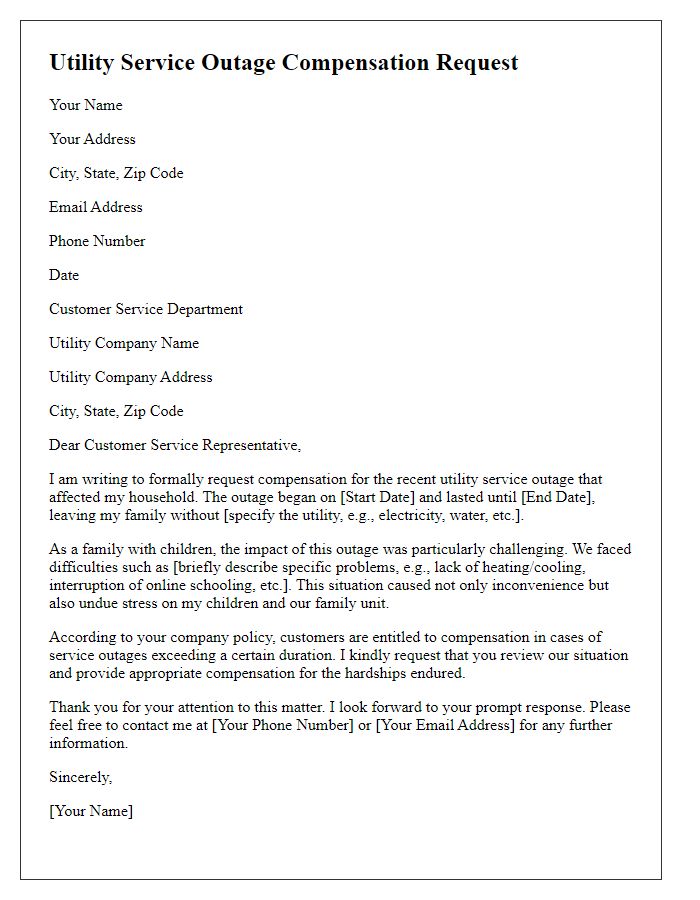
Letter template of utility service outage compensation request for medical necessity situations
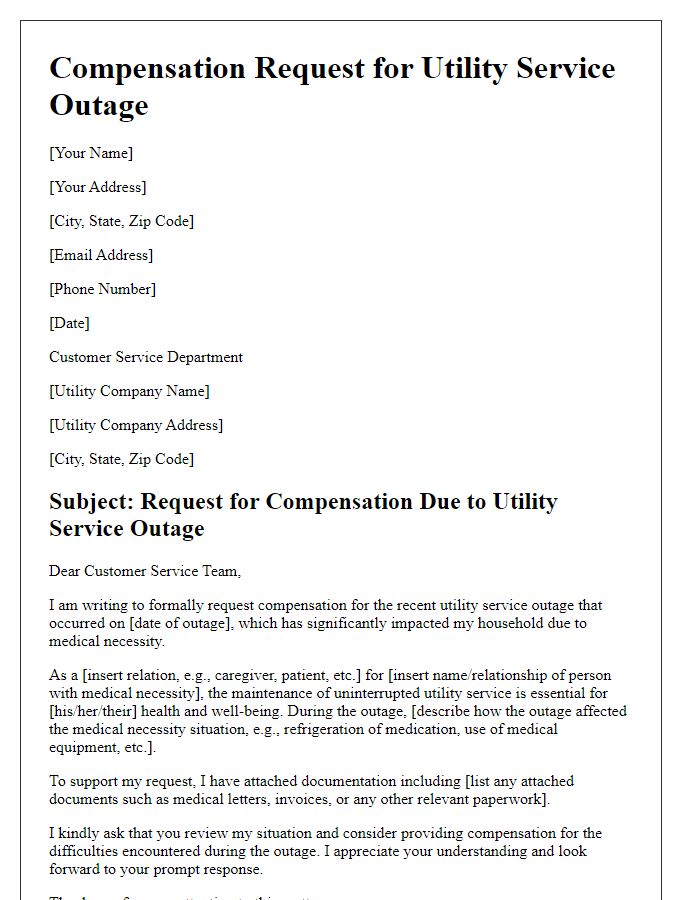
Letter template of utility service outage compensation request for extended outages
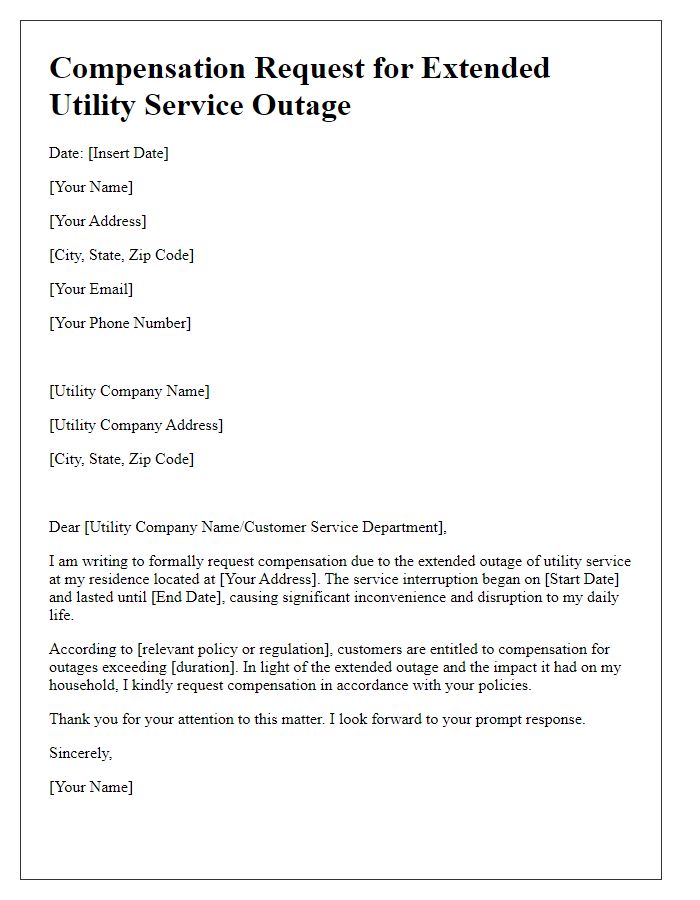
Letter template of utility service outage compensation request for frequent outages

Letter template of utility service outage compensation request for power quality issues
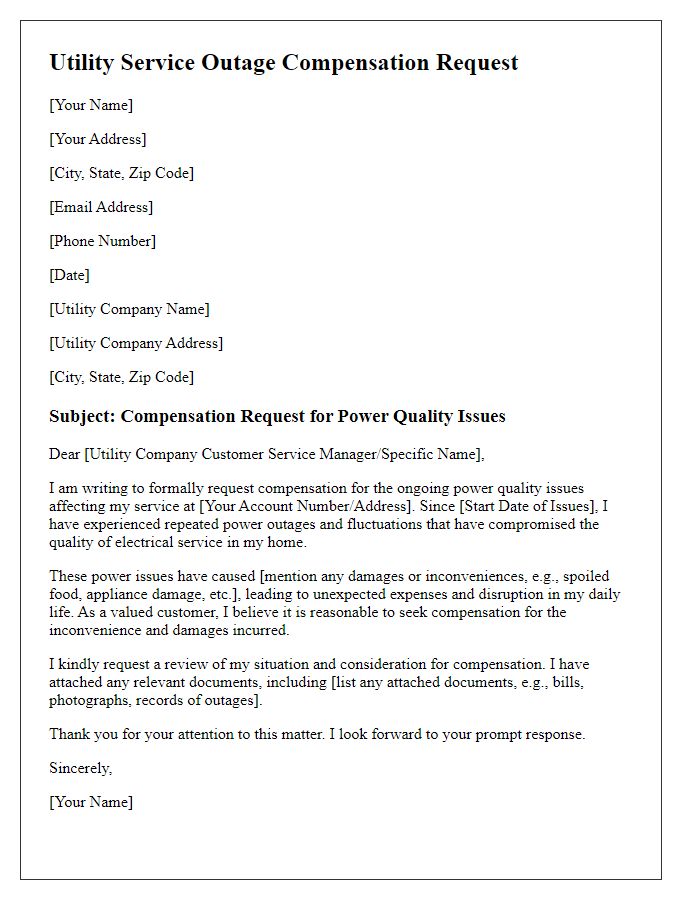

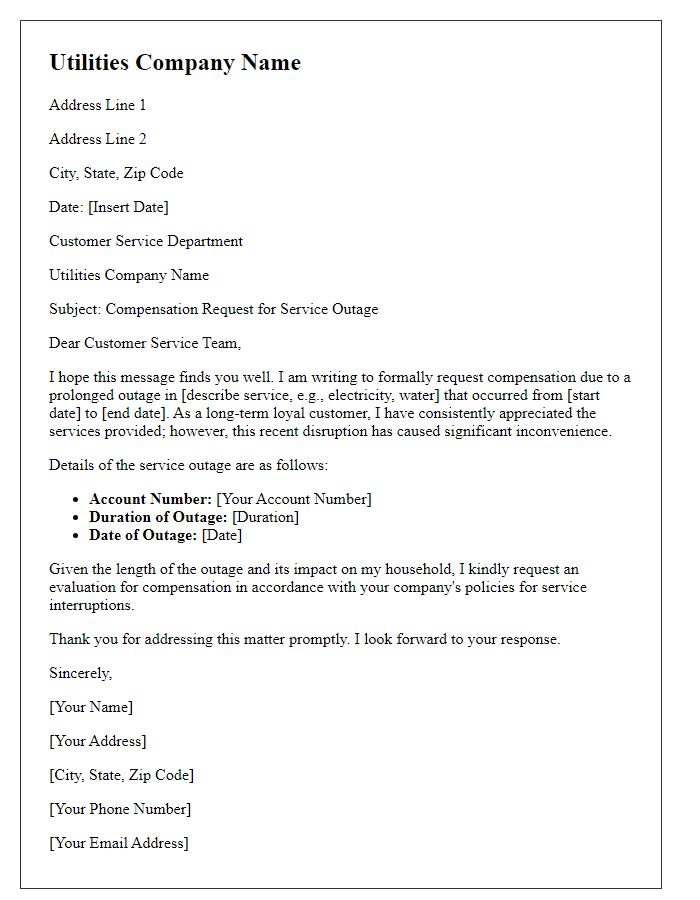


Comments